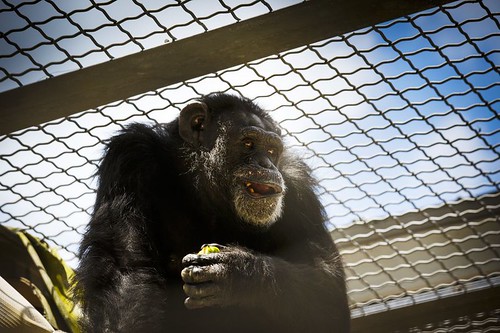The European Patent Office has revoked the patent EP1409646 held by Altor BioScience. After the U.S. company withdrew its controversial claims on genetically engineered chimpanzees, the EPO has now also revoked a changed version of the patent claiming genetically engineered rats and mice as inventions.
Based in Florida, Altor BioScience Corporation is a privately-held, clinical-stage biopharmaceutical company engaged in the discovery, development and commercialization of high-value, targeted immunotherapeutic agents for the treatment of cancer, viral infections, inflammatory and autoimmune diseases.
The European Patent Office made its decision on the basis that there were flaws in the technical quality of the patent.
Thirteen organizations from Germany, Switzerland and Great Britain filed a joint opposition against a patent on genetically engineered chimpanzees granted to Altor BioScience.
The opponents believe this patent revocation is “an important success,” but warned in a statement today that it does not indicate a general change in the legal practice of the European Patent Office.
Patent EP1409646 was granted by the European Patent Office in June 2012. It allows chimpanzees to be manipulated to make their DNA similar to that of humans, and then used in pharmaceutical research.
The opposition argued that this patent violates ethical provisions in patent law.
The opponents – Albert Schweitzer Stiftung fuer unsere Mitwelt, Deutscher Tierschutzbund, Gen-ethisches Netzwerk (GeN), GeneWatch UK, Gesellschaft für oekologische Forschung, Jane Goodall Institute, No Patents On Life!, Menschen für Tierrechte, Pro Wildlife, Schweizerische Arbeitsgruppe Gentechnologie, Schweizer Tierschutz, Testbiotech and the Wild Chimpanzee Foundation, Germany – are calling for animals to be treated with more respect.
Professor Christophe Boesch for the Wild Chimpanzee Foundation said, “We know great apes in particular not only suffer from pain and stress, but also exhibit evidence of consciousness akin to that of humans. Research into animal behavior in species such as chimpanzees and bonobos has fostered a strongly emerging debate about whether these non-human and highly protected animals deserve to be given a legal status similar to that of humans.”
“This debate is a strong signal that great apes must be treated with very high ethical standards,” said Boesch. “The Patent Office is violating basic ethical standards.”
The opponents say the European Patent Office is granting patents on animals based on a controversial legal interpretation despite the patent law that prohibits patents on animal varieties.
Around 1,500 patents that concern animals and their usages have already been granted in Europe.
Testbiotech recently published a report showing that patents and market interests in genetically engineered animals are factors driving the increasing numbers of animal experiments.
To stop companies from making profits from animal suffering, Testbiotech is appealing to investors such as banks to set clear standards for ethical investment. In this context, Testbiotech is today publishing a dossier on the internet platform ‘Banktrack.’
Between 2012 and 2014, Testbiotech together with several other organizations filed four oppositions against patents on genetically engineered chimpanzees, triggering various reactions from the companies concerned.
Some months ago, the Australian company Bionomics announced it would step back from claims covering genetically engineered animals.
In contrast, the U.S. company Intrexon, which holds two European patents on great apes which are manipulated with DNA derived from insects, wants to uphold its patents.
A public hearing on the opposition against the patents held by Intrexon will take place on September 29 at the European Patent Office in The Hague.

































































